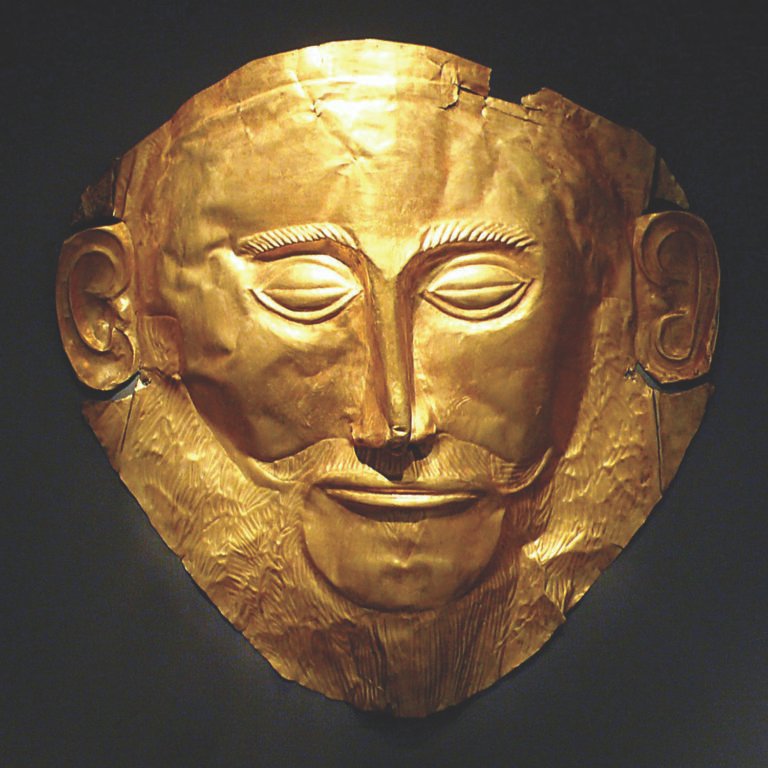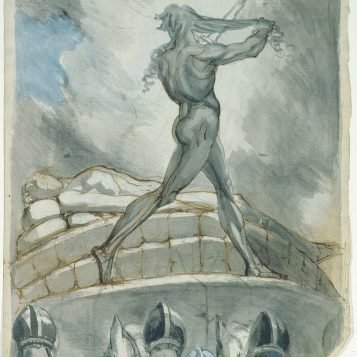“Through its masterful deployment of archaism, inversion, elevated diction, and other techniques of aesthetic distanciation, Duban’s uniquely metered rendering re-Homerizes the Iliad, as it were, casting its remoteness and peculiarity into sharp relief.”
– Robert Pogue Harrison, Rosina Pierotti Professor in Italian Literature, Stanford University, Author, The Body of Beatrice (1988)
The First-Ever Translation of Homer’s Iliad
into a Twelve-Syllable Line

ABOUT THE BOOK
from Author Jeffrey M. Duban

THIS IS A TRANSLATION of Homer’s Iliad. But not just another “Homer’s Iliad in a New Translation.” It is sooner and foremost Homer’s Iliad in a Classical Translation—the first ever into a consistently twelve-syllable line and, at the same time, the longest such work in the English language (the Iliad 15,639 lines).
The translation uses a mildly archaizing style and other poetic devices to suggest the antiquity and flavor of Homeric composition (the method and rationale explained and illustrated in the book’s four-part introduction). It is a translation which, like the original, is both alliterative and polysyllabic—excessive monosyllabism the scourge of many a modern translation. The translation further observes epic decorum (i.e., a style fit or suited to the occasion) with recourse to poetic diction (i.e., the choice and arrangement of words). Decorum entails the avoidance of colloquialisms and commonplaces, again in contrast to many a modern translation. Thus viewed, the present work, in a class of its own, does not suffer the competition of any Homeric translation to date. The approach will elicit admiration and animosity alike.
The Iliad treats of superhuman heroes and superhuman rage, brutal death, unbounded sorrow, the craving for revenge, the shortness of life, the glory quest and, ultimately, of reconciliation and forgiveness. The Trojan War, antiquity’s greatest cataclysm, is of perennial interest. Though abounding in slaughter, the Iliad is not a “war poem” but rather a work lamenting war and the shortness of life. As human nature is unchanging, such matter concerns us as much today as it concerned Homer’s audiences 2,700 years ago. Not for nothing did Ezra Pound observe that “a civilization was founded on Homer.”
Endorsements
“Those who know Jeffrey Duban’s translations and original poetry, The Shipwreck Sea: Love Poems and Essays in a Classical Mode (2019), and The Lesbian Lyre: Reclaiming Sappho for the 21st Century (2016), will be little surprised to have his Iliad now as well. This, as Duban explains, is not just another Iliad “in a new translation” but a new Iliad “in a Classical translation”; that is, an attempt to communicate in English the archaic, ornamental, and artificial qualities of Homer’s language. He employs a once-traditional poetic diction, an elegant twelve-syllable line, principally iambic. Homeric poetry is at once archaic and new, traditional and surprising. Readers of Greek will here rediscover the Iliad in translation, while those without Greek will acquire a sense of the beauty of Homer’s language.”
– Pura Nieto Hernández, Brown University
Contributor, The Homer Encyclopedia
“While Homer’s style can be plain and direct, it is also often very grand and even, at times, ornate. You will find plainness in many modern translations of Homer, but you will likely search in vain for elevation. In his spirited rendering of the Iliad, Jeffrey Duban aims high. Through a carefully crafted use of heightened poetic diction and a consistent metrical formalism, Duban offers us, in English verse, a singular version of Homer’s epic poem.”
– Steven Shankman, University of Oregon,
Author, Pope’s Iliad: Homer in the Age of
Passion (1983), Editor, Pope’s Iliad
(Penguin ed., 1996)
“Translation is a high calling of the classics scholar, an endeavor undertaken only by classicists of the highest order. Following in a nearly four-century tradition of reverence for the beauty of ancient languages and for the lessons antiquity offers to contemporary society, Dr. Duban hails from a long line of Boston Latin School educated scholars. His new translation of the Iliad brings to life a familiar epic that bursts with fresh vigor like the heroes whose journey and travails it recounts. With the achievement of this work, Dr. Duban brings great credit to the Latin School educators of days gone by and to the traditions and curricular rigor that persist today in the nation’s oldest and most historic institution of secondary learning.”
– Sherry Lewis-da Ponte ’88,
The Boston Latin School
“Like the campfires scene concluding Book 8, Duban’s Iliad, with the antique luster of burnished bronze, glints smartly across the plain. Think what you will of the contemporary or ‘new’ translations a’flood the market, this one, classically conceived and executed, is special. Duban does not merely translate but conveys his vision for the Iliad.”
– C. J. Mackie, La Trobe University
Author, Rivers of Fire: Mythic Themes in
Homer’s Iliad (2008)
Why the Iliad is still relevant and studied today:
- The Iliad is an essential part of Western Civilization’s origins
- Epic poetry: a majority of Greek tragedy’s themes and characters come from the Iliad and the Odyssey
- Poetry: this is a poetic translation in English
- Ancient Mythology: Homer is the reservoir for all of the mythological figures
- The interface of classical and Near Eastern studies, with the Iliad and Odyssey reflecting themes raised in the Epic of Gilgamesh
- Archaeologists: much of Homer is validated by archaeological finds
- Ancient religion: Homer is considered as “the Bible of the Greeks” with traces of ritual and cultic practices
- Historians and ancient historians: the Iliad is a mytho-historical epic with the line between myth and history hard to draw
- Military historians: Homer describes weaponry and battlefield tact
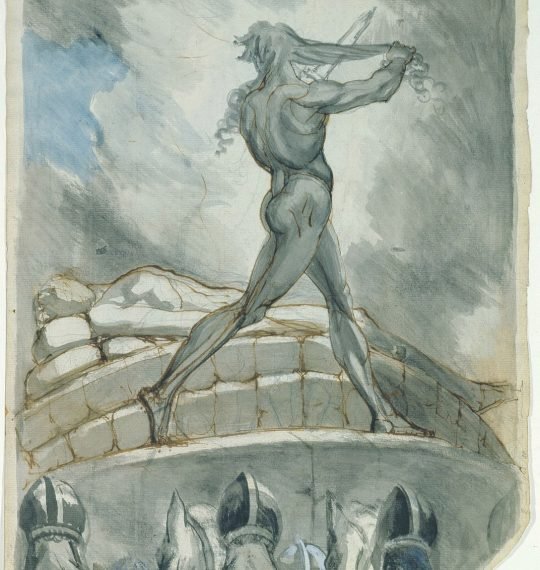
Other Works
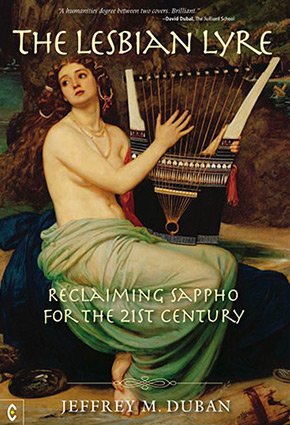
The Lesbian Lyre
Hailed by Plato as the “Tenth Muse” of ancient Greek poetry, Sappho is inarguably antiquity’s greatest lyric poet. Born over 2,600 years ago on the Greek island of Lesbos, and writing amorously of women and men alike, she is the namesake lesbian.
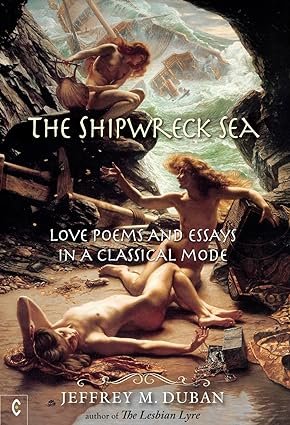
The Shipwreck Sea
The Shipwreck Sea highlights the love poetry of the soulful Sappho, the impassioned Ibycus, and the playful Anacreon, among other Greek lyric poets of the age (seventh to fifth centuries BC).
